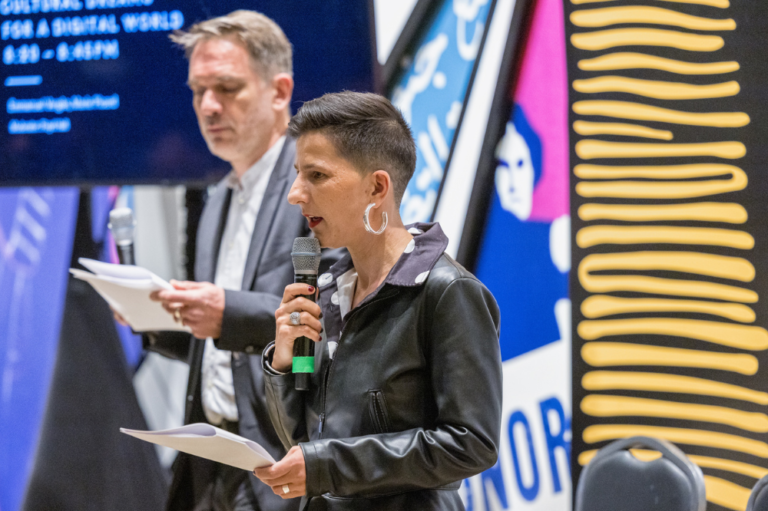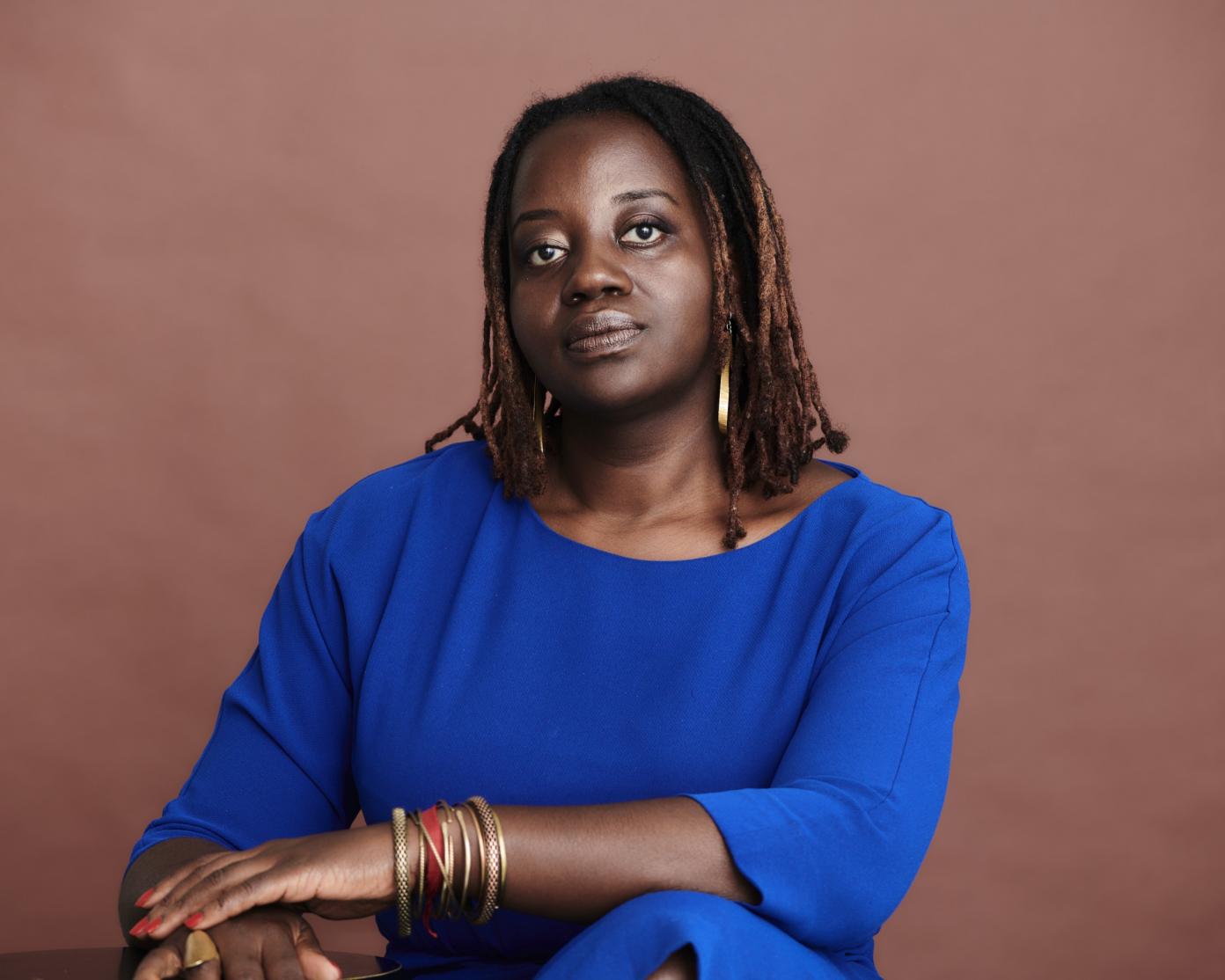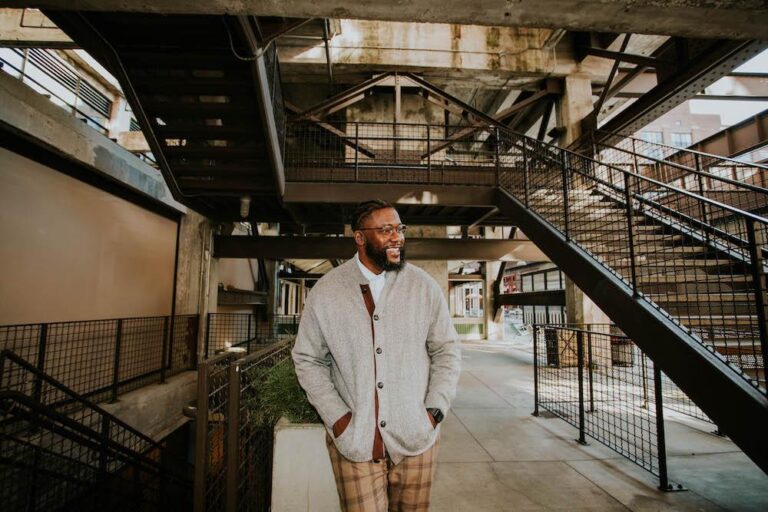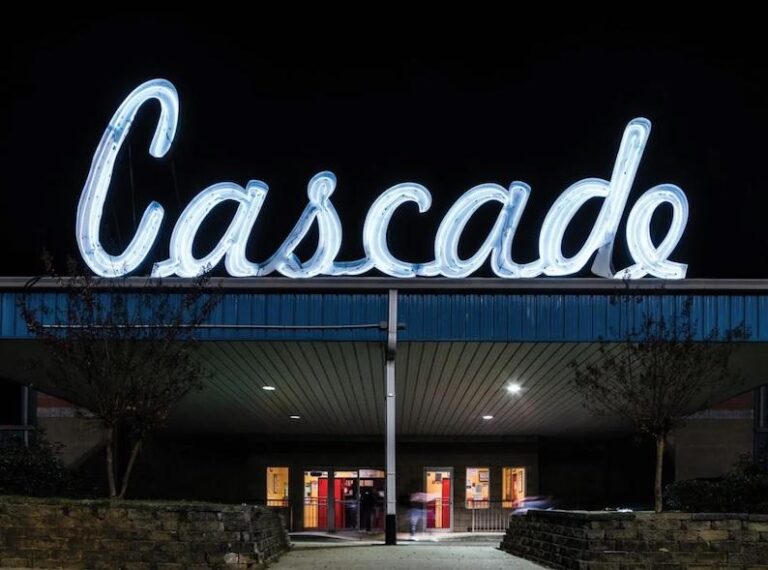
Maboula Soumahoro: Putting the “Atlantic” in “Atlanta”

Ⓒ Patricia Khan.jpg
By Raphaël Bourgois
“Sometimes it does you good to feel you’re doing classical research and not have to justify yourself.” Maboula Soumahoro is an academic and one of the pioneers of Black Studies in France.
Maboula Soumahoro is a lecturer at the University of Tours, specializing in American and African-American studies and the Black/African diaspora. Her visit to Atlanta as part of a residency with Villa Albertine is not her first visit to the United States, but is still a discovery for the author of Black is the Journey, Africana the Name, soon to be published. This immersion in the capital of Georgia, in the southern United States, brings Soumahoro back to a subject that has occupied her since her first thesis work: how to give an account of a history, of realities that are expressed first and foremost outside of academic language?
In your latest essay, Black Is the Journey, Africana the Name (to be published shortly), you suggest the development of an imaginary Atlantic, a conception of this ocean that is common to Europe, America, and Africa as a space in its own right. The name of Atlanta, GA, clearly resonates with this notion. Before taking up your residency there, what does it represent in your own imagination?
Atlanta is a city that is completely foreign to me. I only spent four days there five years ago when I was invited to the United Negro College Fund (UNCF) conference. I obviously knew about the Historically Black Colleges and Universities (HBCUs) and I was able to visit Spelmann College and Morehouse College, which are mythical places for me. I visited the predominantly Black part of the city too, and the church where Martin Luther King was a minister. In my mind, Atlanta epitomizes that history, which I’ve studied, but I don’t know it as intimately as I know New York.
As for the name of the city and its meaning, I have to confess that it was Pascale Beyaert, the former cultural attaché there, who drew my attention to the “Atlantic” in Atlanta. This Atlanta-Atlantic association is still very new to me. I am familiar with the Atlantic, the Caribbean, Central and Latin America, but I entered the United States through New York, as did European immigrants who came here by way of Ellis Island. In my original idea of Atlanta and of the southern United States, I didn’t make the connection.
There was a time, though, when I was particularly interested in the history and culture of the Gullah (or Geechee) people, African Americans from the Sea Islands off the coast of Georgia. As a student, I read a lot about that community and the descendants of slaves on the Georgia plantations, whose isolation led them to invent a Creole language—not the African American dialect, but more like what you might find in the West Indies. I discovered the history of the Gullah through Julie Dash’s film, Daughter of the Dust, and through some of my reading. I dreamed of visiting them—not so much by going to the Sea Islands, from where they were driven out by real-estate development—but to the coasts where they migrated. I’m delighted to be able to get away for three months to immerse myself in that reality.
Let’s talk about the topic of language and translation. In Black Is the Journey, Africana the Name, you write about your relationship with your mother’s language, Dioula, which she didn’t teach you. Will this residency be an opportunity for you to explore that subject in greater depth?
The entire project revolves around the issue of translation, but in a wider sense—translation beyond language, if you will. I have my own obsessions, beginning with my relationship to my mother’s language and the loss of a degree of closeness that can never be recovered. I decided to learn Dioula and Bambara, but I won’t have learned them from my mother, and nothing will ever make up for that. So I’m interested in the notion of translation as transformation, circulation, a way of finding equivalences, between two different places. The result will probably be a performance or a multimedia installation, which will allow me to use different types of language and expression.
Another private example: during my studies, I acquired what you might call “academic” language, which is rather restrictive in use and elitist, and often fails to reach ordinary people. But my personal path has been an upwardly mobile one, and I’ve always wondered how I could share my knowledge, my travels, everything I’ve accumulated, with people who are not trained in academic language. This question has obsessed me since my dissertation on the Nation of Islam and the Rastafarian movements, which interested me because I listened to a lot of rap and reggae. So why was it that, as soon as I started writing my dissertation, I immediately cut myself off from those communities, from the possibility for them to access my writing? What is this language which, at a given moment, sets us apart? And above all, does this language really tell us more than a piece of music? I don’t think so. And what I want to do today is raise awareness of that.
In what way? What can a performance or installation achieve that a social sciences book cannot?
I don’t know what this project will lead to, but I know there will be music, videos, interviews… It’s also a way for me to bring together all my different worlds, to break down the barriers between them. I was really inspired by Omar Berrada, a Moroccan-born researcher who teaches in New York, whose performance I saw at Lafayette Anticipations, the Galeries Lafayettes Foundation for Contemporary Arts. I believe it was in 2018 or 2019 when he gave a performance-lecture looking back on his personal story from Morocco to France while also sharing some of his scientific knowledge. I particularly remember what he said about his grandmother or great-grandmother, who had arrived in the Maghreb from sub-Saharan Africa and whose accent made it hard for her to pronounce certain Arabic words. He used the trace of her otherness as an audio starting point for an exploration and a projection of images from his personal archives interspersed with ethnographic films, texts, music, PowerPoint presentations, etc.
It was like a revelation—he gave a fascinating presentation and showed it could be done differently, using other tools. I’d started breaking away from the academic rules by using the first person singular in Black Is the Journey, Africana the Name. But I soon realized that using “I,” which I’d thought was very radical at first, was nowhere near good enough. By going further, I’ll be able to better bring together the different aspects of my life and experiences.
But everything must still be defined; it’s really a sort of coming-out. I grew up poor in the projects; when I graduated and moved up the social ladder, there wasn’t much room, in the circles I started to move in, for the person I am deep down. As I get older, I want to be all those things at once—time will tell how that works out.
Is it also a way of getting around the resistance you encountered at university in France when you wanted to explore Black Studies? Haven’t things changed since your dissertation?
That’s an interesting question, and the answer is necessarily ambivalent. There has been some progress, of course, but no profound structural changes yet. In my view, real progress will inevitably involve the inclusion of other bodies in universities—especially Black bodies. It’s a subject that is increasingly debated, but sometimes (often) by white experts only. And that won’t solve the problem because you can’t dissociate the subject from the people.
From a more personal perspective, the United States is so far ahead both academically and artistically that I always really enjoy going there, where you can go so much further as a result. Using “I” the way I did or writing a dissertation on the Nation of Islam and the Rastas might seem very avant-garde or radical in France. But in the US, I move in circles where that’s normal—almost conventional even, and sometimes it does you good to feel you’re doing conventional research and not have to justify yourself. Above all, it allows you to dream, to step outside the strictly political or confrontational, and therefore to work with a certain intellectual comfort, to be able to think without having to defend yourself, justify yourself or seek legitimacy.
But do you think that inevitably entails a form of insularity in terms of teaching, and therefore thinking? Should the possibility of scientific objectivity be completely sacrificed to the prevalence of the necessarily situated subject?
What the HBCUs make possible—and even the universities and intellectual enclaves that would be described in France as “communitarian”—is a certain comfort. I mean that in the HBCUs, we don’t just repeat “We are African American, we are African American, we are African American.” You can train in any discipline you like, but there is always an understanding of the prevailing hostility—of what I have called the “racial load.” Those places were created to take care of people, and I’d like to specify (as there is often a misconception in France) that whites are not excluded from the HBCUs, either as students or professors. So the real question is, why are there so few?
I’d like to draw a parallel with the women’s universities that were opened at a time when women were excluded from university. Today, those universities, like Barnard College at Columbia, which I know very well, are no longer women-only… but they are still places that address the problem of sexism in universities and allow women to develop leadership skills that would have been harder for them to acquire at a more traditional university. That in no way prevents men from going to Barnard! In France, we need to realize the importance of such places, where minorities are in great number and find a certain comfort while remaining open and keeping the discussion going with different people.
Nonetheless, when you’re in an American context, do you feel like you bring something French with you?
Of course, because I’m not just a Black woman in the United States, I’m also French. And I’m not an African from the continent or from the Caribbean either. I’m a Parisian. And that obviously impacts my relationship to society. The biggest difference I feel with my African American colleagues is that I’m used to interacting outside my community. I have no problem moving in Black, white, Asian, Latino, and Native circles… Maybe I can navigate in those different spheres more easily because I’m not burdened by the local or national history. That isn’t me. I think it’s rather like African Americans who come to Paris and are accepted in circles they wouldn’t mix in back in the States because of the strong tensions there. When I’m in the States I can go wherever I like, see any exhibition I like. Sometimes, when you’re a foreigner who is not disliked, there are advantages.


